Tackling weaning stress with nutrition
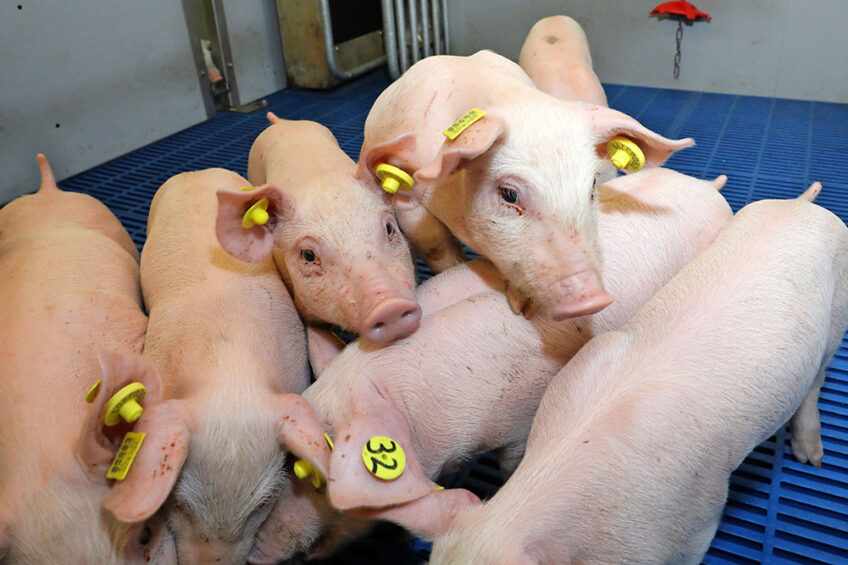
No doubt, the presence of Escherichia coli bacteria is an important cause of post-weaning diarrhoea, but it is not the only factor by far. Bearing in mind that many factors can contribute to post-weaning diarrhoea, a multifactorial approach should be able to tackle quite a few. Exactly how far can nutritional solutions go to provide a solution?
The post-weaning syndrome associated with enterotoxigenic E. coli remains one of the most economically important and complex challenges in today’s global pig industry. During the first two to three weeks post-weaning, piglets lose the passive immune protection provided through sow milk and may suffer from diarrhoea, oedema or sudden death. Surviving piglets often show signs of retarded growth and are unable to achieve their lean growth potential. Compromised performance may continue until slaughter.
Post-weaning diarrhoea in pigs involves many factors and cannot be solely attributed to the presence of E. coli. To allow the pathogens’ proliferation there must be certain predisposing factors: Genetic predisposition, weaning age and housing conditions are some factors that play a role, along with an abrupt nutritional change that is inextricably linked to weaning.
A drastic decrease in piglet feed intake is often an unwelcome side effect of that nutritional transition. As hunger sets in a few days after weaning, a corresponding surge in feed intake can overwhelm the piglet’s immature digestion capacity, resulting in an overflow of improperly digested feed components into the lower gut. This occurrence disturbs the microbial balance, allowing potentially harmful bacteria such as E. coli to proliferate. Meanwhile, the piglet’s still-developing immune system is poorly equipped to manage the pathogen pressure.
Below, 4 dietary strategies are considered to help support pigs in the transitory weaning phase.
 Continuous feed intake
Continuous feed intake
Growth and performance require that piglets continuously consume adequate nutrition. Research conducted by Trouw Nutrition found that orally infecting piglets with E. coli only resulted in worse feed conversion when piglets’ feed intake dropped below a minimal threshold. Making the diet highly palatable and ensuring that there are no physical, chemical or microbiological contaminants present is essential to sustain adequate intake. Piglets are very sensitive to taste and off-flavours in feed that may be caused by factors such as lipid oxidation or microbiological contamination. As well as a feed’s taste and smell, the mouthfeel of the diet will affect the piglet’s acceptance of feed. Feed processing conditions must be adapted and precisely controlled, not only to maintain the nutritional quality but also to produce a soft and easily chewable feed.
 Reduction of stress
Reduction of stress
Managing young piglets’ suboptimal digestive capacity is a major challenge. Acidification of feed and drinking water helps compensate for piglets’ insufficient gastric acid production. Those acids are needed for adequate digestion of protein in feed. Acidifying feed and water will also impede the progression of harmful pathogens by adjusting the pH to a level where harmful bacteria struggle to survive. Innovative feed formulation technologies address that challenge from a different angle: Available raw materials are cleverly combined based on the kinetics of their protein, starch and fibre digestibility, thereby minimising the amount of undigested nutrients reaching the lower gut.
 Early support for gut development
Early support for gut development
Gut development, including colonisation of the microbiota, is a fragile process typically taking 12–14 weeks to complete. The establishment of resident microbiota can have a lifetime effect on a piglet’s gut health and immunity. Nutritional interventions that stabilise a piglet’s resident microflora can help young animals develop and maintain healthy guts. These measures may start even prior to birth. For example, researchers at Trouw Nutrition are studying how tailored feed additives administered to the sow can vertically steer microbiota transmission from sow to piglets.
The first results from a trial involving 240 sows revealed that sows receiving a diet fortified with an organic acid blend and Presan-FX (a blend designed to stabilise microbiota and strengthen the gut barrier) during late gestation and lactation produced larger litters that were heavier and more uniform at weaning (Figure 1).
Figure 1 – Frequency distribution of weaning weights at an average of 26 days of age. Sows in the treatment group received various blends* during late gestation and lactation.

 Optimising immune response
Optimising immune response
Weaning is a stressful event, and stress is known to weaken the immune system response. The immunity challenge is exacerbated as weaning occurs at a time when the piglet’s immune system is still immature. Adjusting the dietary ratio and the level of amino acids – which are required to produce defensive proteins and immunoglobulins in situations of an immune challenge – is one step in managing the immunity challenge. Additionally, functional ingredients that foster an adequate immune response can offer another step in a multifactorial approach to help bridge the immunity gap and support an adequate immune response. Among those ingredients are specific beta-glucans extracted from yeast cell walls. Beta-glucans are well known to play a role in supporting immunity by activating macrophages, the first line of defence cells that specialise in finding, “eating” and killing pathogens and which have the ability to activate other cells of the immune system.
Fibosel, a source of exposed beta-1,3/1,6-glucans from a specifically selected strain of yeast Saccharomyces cerevisiae, has proven its merit in many studies. Administered to sows during late gestation and lactation, it seems to especially benefit litters from primiparous sows: Piglet mortality during lactation was reduced from 14.5% to 7.4%, with smaller improvements in multiparous sow litters. The systemic effects of beta-glucans were also proven in a study where piglets received a fortified supplement during lactation, but not after weaning. These piglets showed improved growth, feed intake and feed conversion as well as less diarrhoea in the first three weeks after weaning when orally challenged with E. coli. In a series of studies, E. coli–challenged piglets that received those beta-glucans in their diet after weaning showed better post-weaning growth and intake, improved feed conversion and reduced diarrhoea scores (frequency x severity) compared to equally challenged piglets in a control group (Figure 2).
Figure 2 – Post-weaning performance and diarrhoea in E. coli-challenged piglets receiving a beta-glucans^ fortified diet relative to an equally challenged control group.

In conclusion, functional ingredients as part of a multifactorial approach can significantly contribute to nutritional management of weaning stress and can support piglets’ health and performance.
Author:
Dr Ellen Hambrecht, Selko Feed Additives and Dr Ruben Decaluwe, Trouw Nutrition
Join 18,000+ subscribers
Subscribe to our newsletter to stay updated about all the need-to-know content in the pigsector, three times a week. Beheer
Beheer
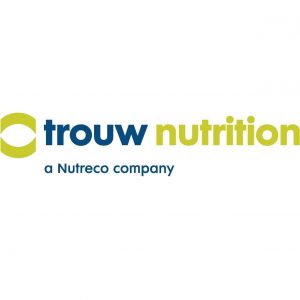

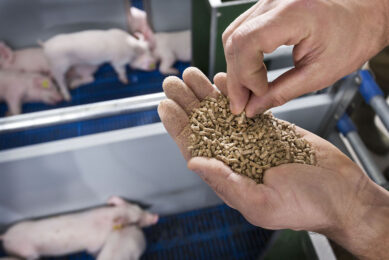
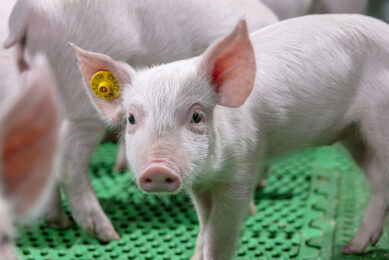
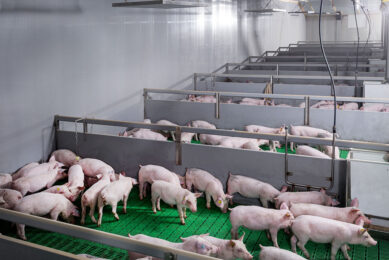
 WP Admin
WP Admin  Bewerk bericht
Bewerk bericht